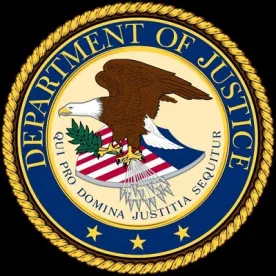A recent business review letter issued by the US Department of Justice Antitrust Division to five pharmaceutical and medical/surgical distributors offers insights into the antitrust enforcers’ views on competitor collaborations aimed at improving product access to respond to the Coronavirus (COVID-19) pandemic. The letter can provide guidance to other companies considering collaborations to assist in the response to COVID-19.
IN DEPTH
The US Department of Justice (DOJ) Antitrust Division issued a business review letter that underscores the flexibility of the US antitrust regulators towards competitor collaborations aimed at increasing the supply and distribution of medical equipment needed to fight the Coronavirus (COVID-19) pandemic. This letter can provide guidance to other companies considering collaborations to assist in the response to COVID-19.
The business review letter states that DOJ has no present intention to challenge a collaboration among five medical/surgical and pharmaceutical distributors that are working with federal government agencies, including the Federal Emergency Management Agency (FEMA) and the US Department of Health and Human Services (HHS), to facilitate the acquisition and distribution of critical supplies to US healthcare providers. DOJ issued the business review letter in response to a request for expedited treatment pursuant to the DOJ Antitrust Division/Federal Trade Commission March 24, 2020, Joint Statement Regarding COVID-19 (joint statement).
KEY TAKEAWAYS FOR BUSINESSES
DOJ is committed to issuing swift guidance for businesses engaged in competitor collaborations limited in scope and duration to address the COVID-19 pandemic. DOJ issued its business review letter within the seven-day time period outlined in the joint statement.
Conduct undertaken at the direction of, and in conjunction with, government agencies is likely to be viewed positively, especially if the activity does not involve sharing competitively sensitive information between private actors, market allocation of any kind or activity related to setting prices. Information sharing between private actors and the government directly does not raise antitrust concerns so long as appropriate and reasonable measures are taken to prevent private actors from accessing another entity’s confidential information.
THE COMPETITOR COLLABORATION DOJ REVIEWED
Five medical/surgical distributors (McKesson Corporation; Cardinal Health, Inc.; Owens & Minor, Inc.; Medline Industries, Inc.; and Henry Schein, Inc.) (collectively, the distributors) sought a business review letter (the request) regarding their “joint efforts to identify global supply opportunities, ensure product quality, and facilitate manufacturing, sourcing, and product distribution” to communities and healthcare providers in desperate need of medical supplies. The request explained that efforts to date largely relate to personal protective equipment, but may expand to medications.
The distributors contemplate that the collaboration “will only last for as long as such efforts are necessary for the welfare of our country.”
The request explained that federal government agencies, including FEMA and HHS, have asked the distributors and other parties to help procure and distribute supplies in the face of serious shortages, and to help identify potential additional sources of supply.
THE CONDUCT AT ISSUE
The joint conduct the distributors outlined for the DOJ includes:
-
Helping FEMA, HHS and foreign governments identify and address bottlenecks
-
Identifying sources of supply
-
Identifying and monitoring increased demand
-
Expediting distribution (including Project Airbridge)
-
Through bilateral discussions involving only one distributor at a time, helping FEMA/HHS understand competitive prices and negotiate competitive prices
-
Providing data
The distributors explained that they will need to engage in much of the proposed conduct directly with the government agencies, but also noted that some activities could occur between distributors without agency representatives present.
DOJ INDICATES THE COLLABORATION IS LAWFUL
In the business review letter, the DOJ indicated that the collaboration is procompetitive and lawful under antitrust principles. DOJ explained that important factors in its decision include the fact that federal government agencies are directing the distributors’ activity, and the DOJ Antitrust Division is overseeing the activity and participating in many of the communications between the distributors and FEMA/HHS. DOJ also indicated that the parties are taking appropriate steps to avoid “spillover” beyond the scope of collaboration necessary to assist in the COVID-19 response.
The business review letter gave several guidelines for the parties to follow when engaged in collaborative conduct to respond to COVID-19:
-
The conduct is specifically intended to further US government policy and efforts
-
The collaboration is not used to increase prices, reduce output, reduce quality or otherwise engage in COVID-19 profiteering
-
The parties will not share competitively sensitive information with each other (only with the federal government agencies)
-
The collaboration ends when COVID-19-related issues are over
-
The parties will formally dissolve the collaboration at that time
-
The distributors will work with DOJ to sequester competitively sensitive material produced to the federal government during the collaboration
DOJ’S REASONING
The business review letter gave the following bases:
-
It relied on the guidance issued in March that collaboration efforts, “limited in duration and necessary to assist patients, consumers, and communities affected by COVID-19 and its aftermath,” may be “a necessary response to exigent circumstances that provide Americans with products or services that might not be available otherwise”
-
The president has delegated disaster relief coordination efforts to the administrator of FEMA, which agency is directing and guiding the distributors’ joint efforts. Conduct by federal agencies is immune from scrutiny under the antitrust laws. This immunity extends to coordinated activity by private parties when directed by the government
-
DOJ Antitrust Division attorneys participate in meetings between the distributors and FEMA and have visibility into the efforts
-
The collaboration is limited in scope and duration to address the pandemic, which minimizes the risk of anticompetitive harm
-
The activities do not involve sharing competitively sensitive information, and do not involve price fixing or market allocation
-
Products are being brought to consumers faster than they otherwise would be, and the efforts are directly addressing product scarcity
-
In all other respects, the parties continue to pursue their independent business interests
Overall, DOJ concluded that the collaboration appeared procompetitive to the extent it would increase the supply and availability of desperately needed products. Moreover, DOJ indicated that the parties were taking appropriate steps to ensure that the collaboration was limited to the COVID-19 response and would not be a mechanism for broader collaboration among the parties, which remain competitors.
DOJ noted that certain of the activities may be allowed under (i) the Noerr-Pennington doctrine, which allows competitors to collaborate in petitioning the government to take a particular action, or (ii) state action immunity under the antitrust laws, which immunizes conduct where application of the antitrust laws would “disrupt” the government regulatory scheme.
This business review letter provides significant insights into the antitrust enforcers’ views related to competitor collaborations aimed at improving product access to respond to the pandemic. Its rationales—and its limitations—should be useful for other companies engaging in or considering collaborations.





 />i
/>i

